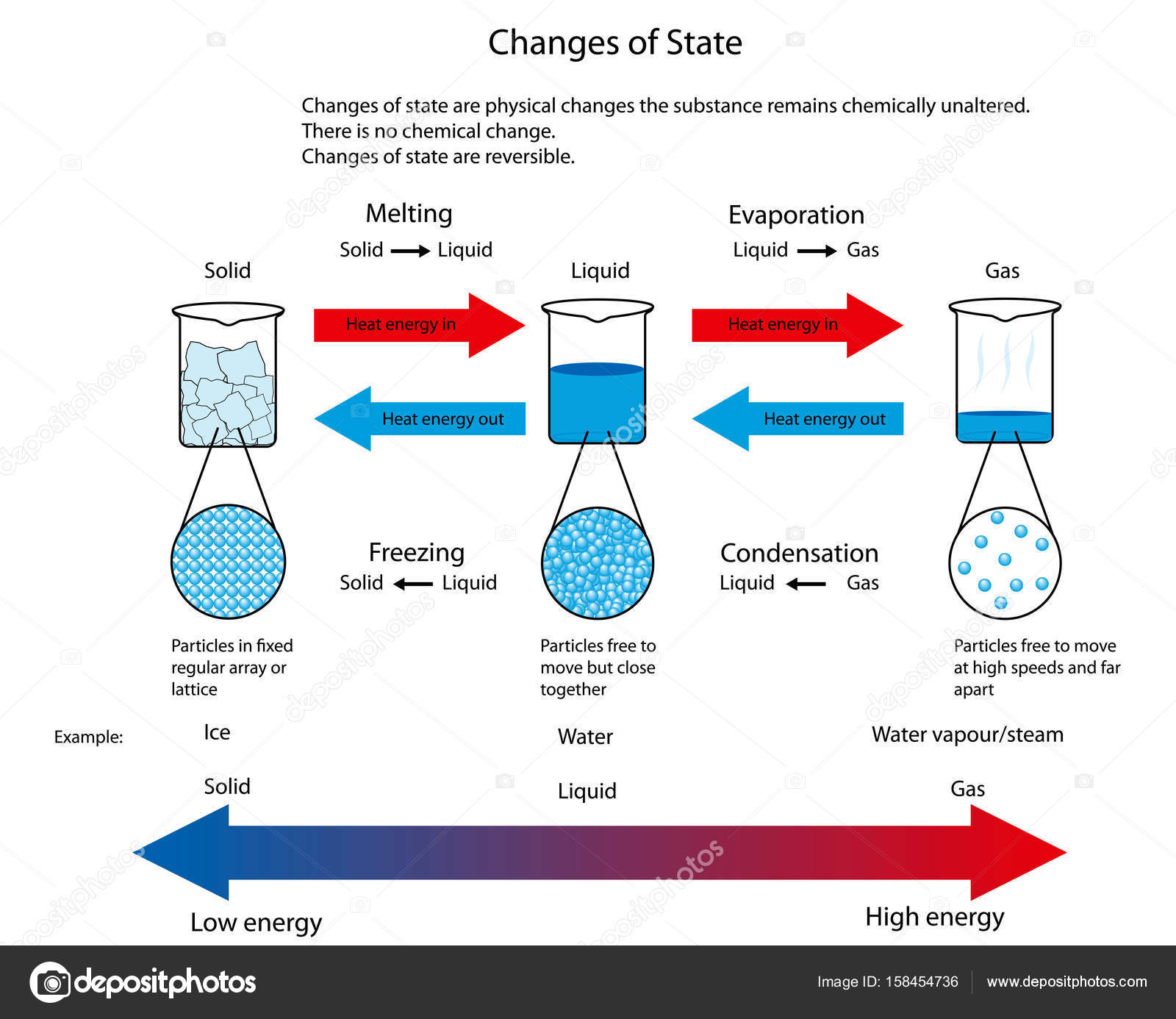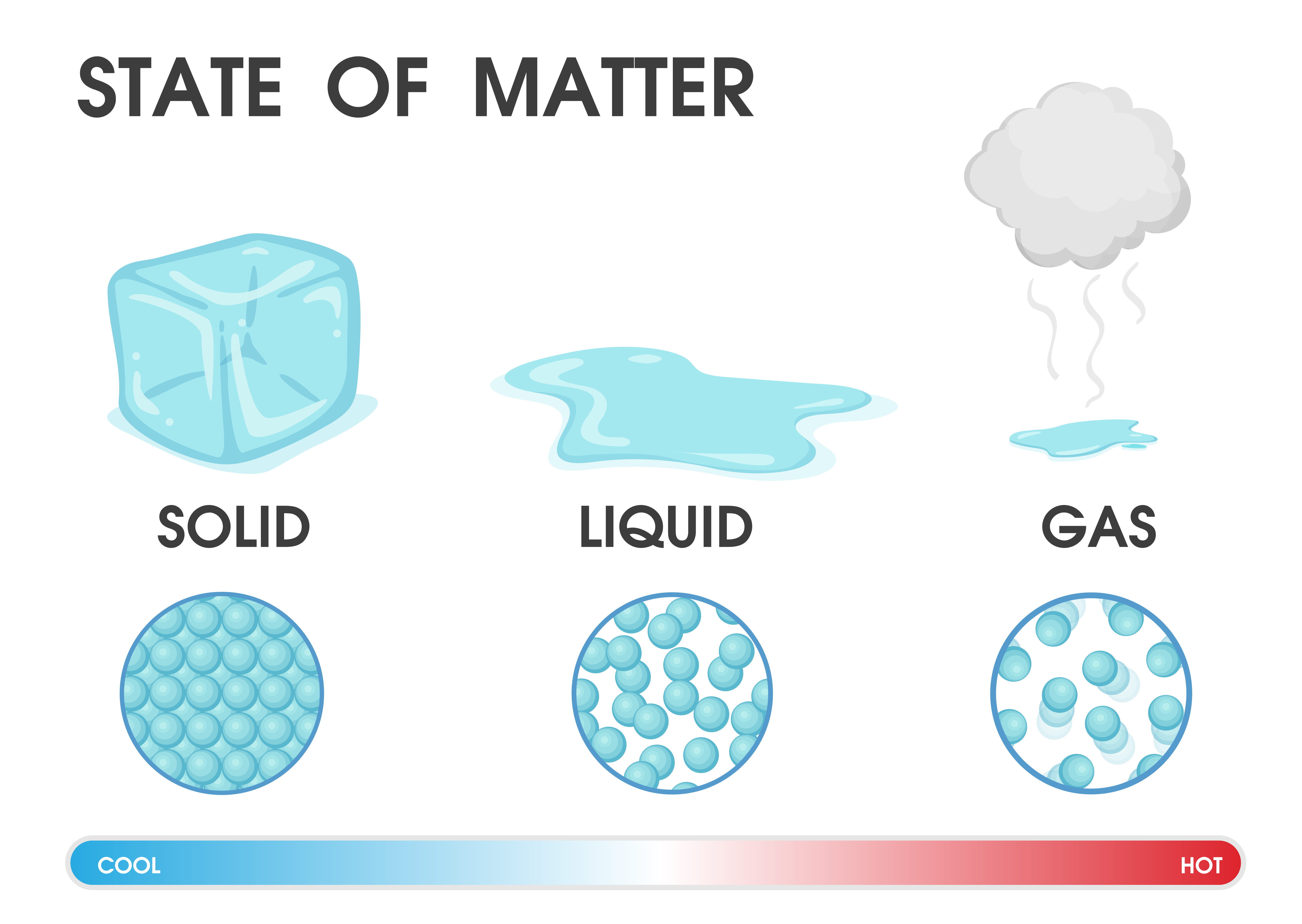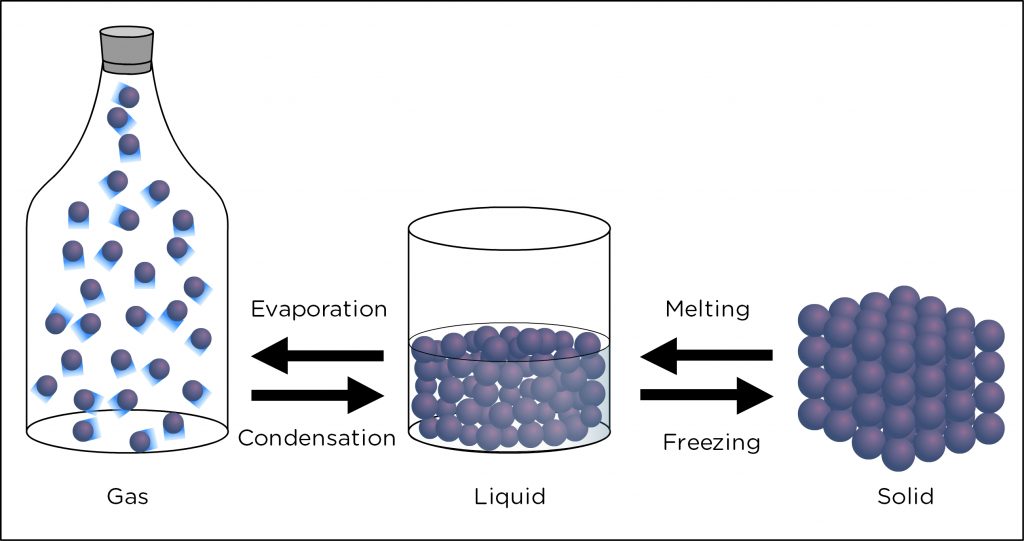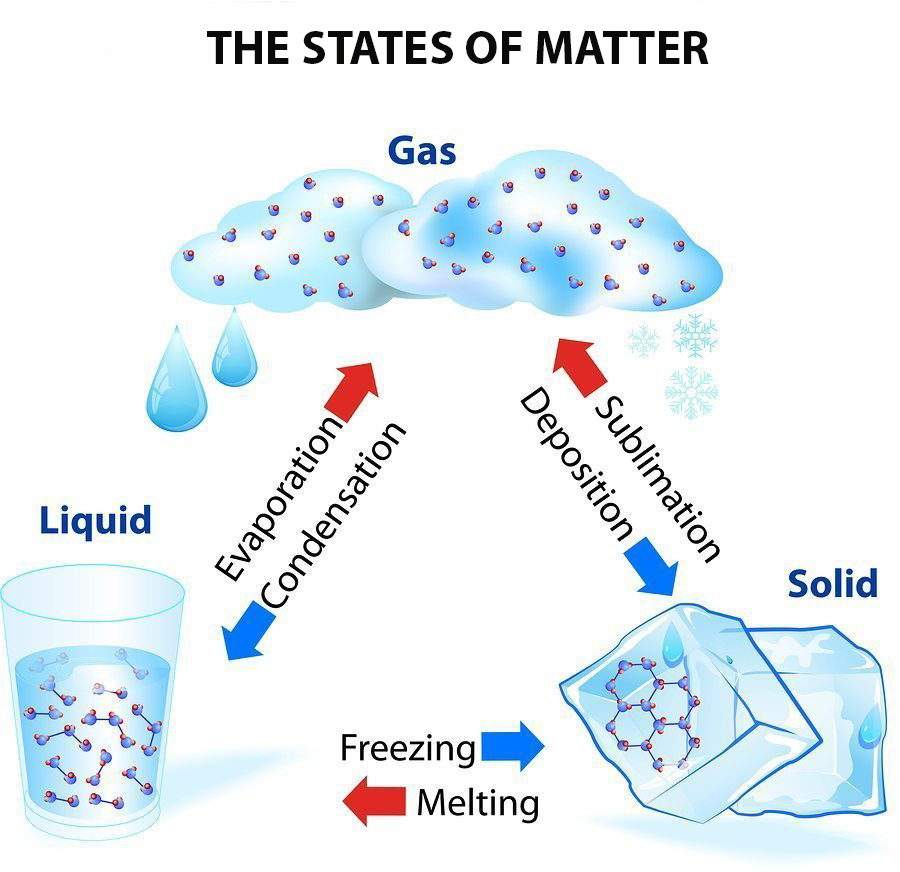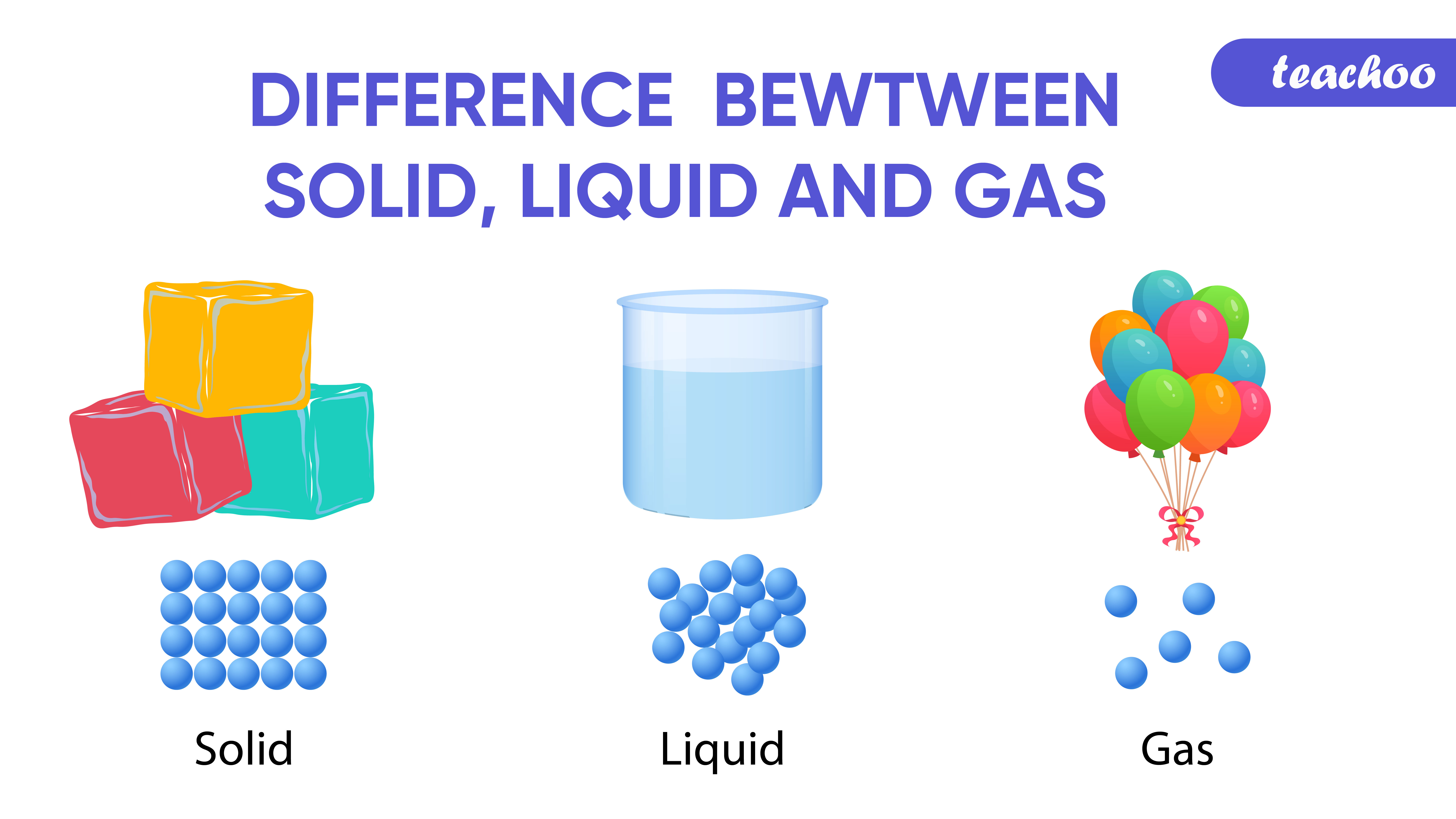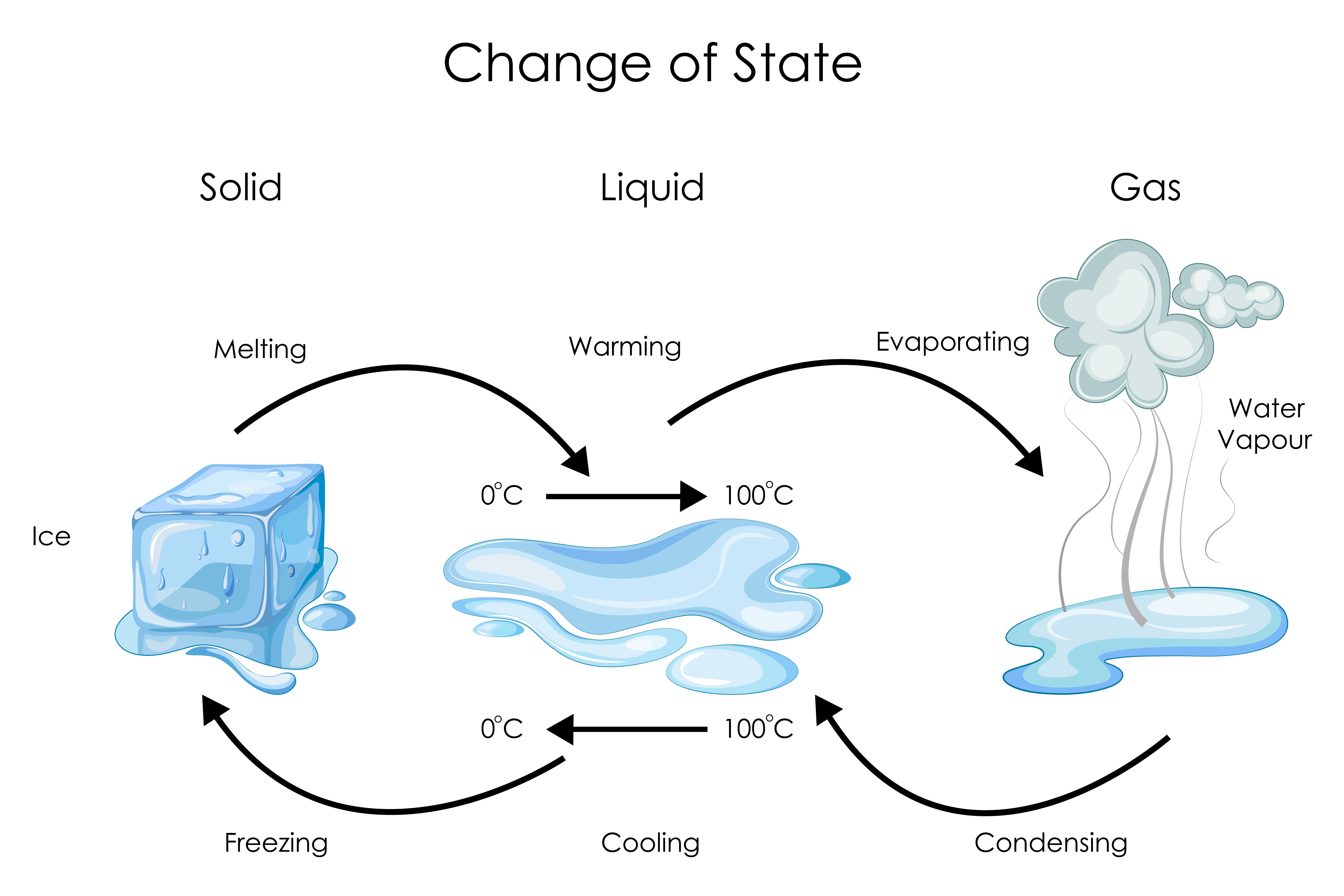Process In Which Liquid Water Changes Into Gas Form
Process In Which Liquid Water Changes Into Gas Form - Web introduction to chemistry liquids and solids liquid to gas phase transition learning objective describe the process of vaporization. Web evaporation is the process that changes liquid water to gaseous water (water vapor). The transition of the solid phase to the gaseous phase without. Web the process of water changing from a gas to a liquid is called condensation, and when gas changes directly into a solid, it is called deposition. these two processes. Web solution verified by toppr correct option is c) sun derives the water cycle, heats up water in ocean and seas, and then water vapours evaporate to air. Web because water is extremely versatile, it can change states into the following three forms: Let’s take a look at the conditions water needs to. Web if you heat a liquid like water up even more (like if you put it in a pot on the stove), then the molecules will move around so fast that they can’t even hold on to each other at all. Web evaporation is the process that changes liquid water to gaseous water (water vapor). It is also called evaporation.
Web evaporation is the process that changes liquid water to gaseous water (water vapor). Web from solid ice to liquid water in a process called melting. Each spring you see snow melt into slush and puddles. When water evaporates we obtain the gaseous form of water, commonly known as. Water moves from the earth’s surface to the atmosphere via evaporation. Key points evaporation is a phase. Web evaporation is the process of a liquid turning into its gaseous form. It can release vapor as well. Ice cubes in a cold drink, for example, gradually melt. Web water changes form from liquid to gas by the process of evaporation.
Web evaporation is the process that changes liquid water to gaseous water (water vapor). Each spring you see snow melt into slush and puddles. Water moves from the earth’s surface to the atmosphere via evaporation. Web the process of water changing from a gas to a liquid is called condensation, and when gas changes directly into a solid, it is called deposition. these two processes. We see water freeze, transforming into a solid form such as ice, and we see water evaporate, turning. Web as it moves, water can change form between liquid, solid, and gas. Since we know that the particles of a gas are moving faster than those of a liquid, an. Water moves from the earth’s surface to the atmosphere via evaporation. Let’s take a look at the conditions water needs to. When a liquid hits its boiling point, it will evaporate and turn into gas.
Illustration for changes of state between solid, liquid and gas ⬇
Water moves from the earth’s surface to the atmosphere via evaporation. The transition of the solid phase to the gaseous phase without. Circulation mixes water in the oceans and transports water vapor in the atmosphere. Web the process of water changing from a gas to a liquid is called condensation, and when gas changes directly into a solid, it is.
INFO SHEET Hidden heat Converting a liquid at its boiling point to
Web the process of water changing from a gas to a liquid is called condensation, and when gas changes directly into a solid, it is called deposition. these two processes. Water moves from the earth’s surface to the atmosphere via evaporation. Ice cubes in a cold drink, for example, gradually melt. It is also called evaporation. Web the process of.
Changing the state of matter from solid, liquid and gas due to
Each spring you see snow melt into slush and puddles. We see water freeze, transforming into a solid form such as ice, and we see water evaporate, turning. Circulation mixes water in the oceans and transports water vapor in the atmosphere. Let’s take a look at the conditions water needs to. Web from solid ice to liquid water in a.
Chapter 4 Water Vapor Atmospheric Processes and Phenomenon
It is also called evaporation. Web evaporation is the process that changes liquid water to gaseous water (water vapor). Let’s take a look at the conditions water needs to. When a liquid hits its boiling point, it will evaporate and turn into gas. Ice cubes in a cold drink, for example, gradually melt.
Itinerant Mission 3 Physical States of Matter Solid Liquid Gas
When a liquid hits its boiling point, it will evaporate and turn into gas. Web evaporation is the process that changes liquid water to gaseous water (water vapor). Web solution verified by toppr correct option is c) sun derives the water cycle, heats up water in ocean and seas, and then water vapours evaporate to air. Web if you heat.
Difference between Solid, Liquid, Gas in Table Form Teachoo
Web the process by which a substance changes from the gaseous phase to the liquid phase is known as condensation. When water evaporates we obtain the gaseous form of water, commonly known as. Water vapor can also change back to liquid by the process of condensation. Web evaporation is the process of a liquid turning into its gaseous form. Let’s.
Gas to liquids Process YouTube
Web as it moves, water can change form between liquid, solid, and gas. Water moves from the earth’s surface to the atmosphere via evaporation. Web the process of conversion of a substance from liquid to gaseous state is called evaporation. Key points evaporation is a phase. Web introduction to chemistry liquids and solids liquid to gas phase transition learning objective.
Chemistry States Of Matter Level 2 activity for kids PrimaryLeap.co.uk
Ice cubes in a cold drink, for example, gradually melt. Since we know that the particles of a gas are moving faster than those of a liquid, an. Web solution verified by toppr correct option is c) sun derives the water cycle, heats up water in ocean and seas, and then water vapours evaporate to air. Web as it moves,.
The process in which liquid water changes to water vapor.
When water evaporates we obtain the gaseous form of water, commonly known as. Web as it moves, water can change form between liquid, solid, and gas. Web solution verified by toppr correct option is c) sun derives the water cycle, heats up water in ocean and seas, and then water vapours evaporate to air. Web if you heat a liquid.
Different States Of Matter Solid, Liquid, Gas Vector Diagram in 2021
It is also called evaporation. It can release vapor as well. Web evaporation is the process of a liquid turning into its gaseous form. Let’s take a look at the conditions water needs to. Water moves from the earth’s surface to the atmosphere via evaporation.
Web Evaporation Is The Process That Changes Liquid Water To Gaseous Water (Water Vapor).
Web the process of conversion of a substance from liquid to gaseous state is called evaporation. Web vaporization is the process of converting a liquid into a gas. Water moves from the earth’s surface to the atmosphere via evaporation. Web if you heat a liquid like water up even more (like if you put it in a pot on the stove), then the molecules will move around so fast that they can’t even hold on to each other at all.
Web As It Moves, Water Can Change Form Between Liquid, Solid, And Gas.
Since we know that the particles of a gas are moving faster than those of a liquid, an. Circulation mixes water in the oceans and transports water vapor in the atmosphere. Web water changes form from liquid to gas by the process of evaporation. Web the process of gas turning into liquid is called condensation.condensation.condensationcondensationa gas ‘condenses’ into a liquid.
Web Because Water Is Extremely Versatile, It Can Change States Into The Following Three Forms:
Web the process by which a substance changes from the gaseous phase to the liquid phase is known as condensation. Let’s take a look at the conditions water needs to. Web from solid ice to liquid water in a process called melting. Web evaporation is the process that changes liquid water to gaseous water (water vapor).
It Is Also Called Evaporation.
Each spring you see snow melt into slush and puddles. Water vapor can also change back to liquid by the process of condensation. Water moves from the earth’s surface to the atmosphere via evaporation. Web evaporation is the process of a liquid turning into its gaseous form.
